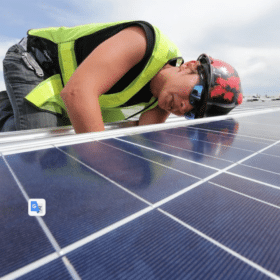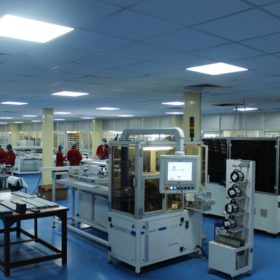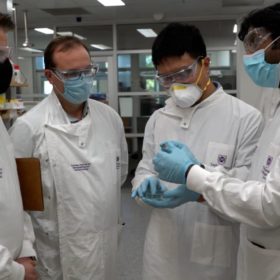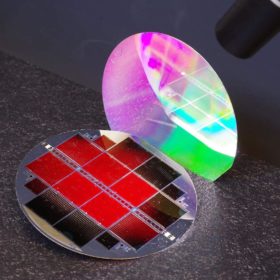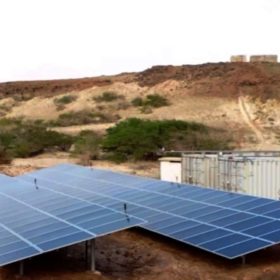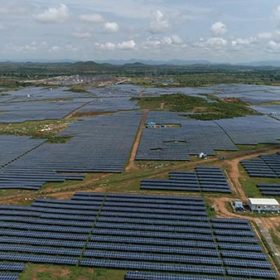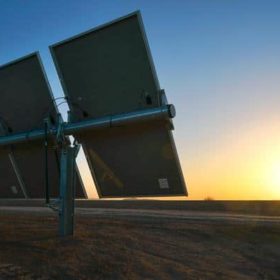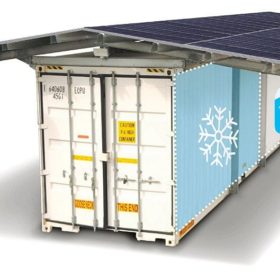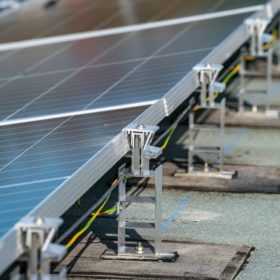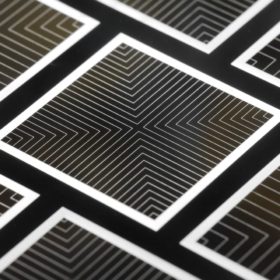Solar 101: Attaching your PV system to your roof
A solar racking system’s strength is determined in part by the metal racking, but it also depends on the roof’s underlying structure. Rafters and any supporting structures must be strong enough to withstand your region’s maximum wind and snow loads.
Gautam Solar doubles capacity with new production line
Gautam Mohanka, managing director of New Delhi-headquartered Gautam Solar, told pv magazine its Haridwar module factory, now scaled up to 250 MW, is producing panels with a power output of up to 400 W, using mono PERC and polycrystalline cells.
Graphene aluminum ion batteries with ultra-fast charging
The “graphene revolution” is almost here. Australian scientists specializing in aluminum-ion batteries are now working with Brisbane-based Graphene Manufacturing Group to commercialize a technology that could transform energy storage.
Fraunhofer ISE achieves 35.9% efficiency for III-V triple-junction solar cell based on silicon
The cell, which looks externally like a device with a two-terminal architecture, was built with III-V semiconductor layers that were connected to the silicon sub-cell on the atomic level. The cell may be used in electrically powered aircraft and drones.
PV-powered desalination system for rural areas
Italian start-up Genius Watter has developed a solar desalination solution that is claimed to be particularly suitable for remote areas with no connection to grid electricity. The system is able to produce up to 1,000 cubic meters of potable water per day at an opex of €0.20 per cubic meter.
One-stop portal launched to provide all-India renewable energy generation data
The Central Electricity Authority, CEEW’s Centre for Energy Finance, and Shakti Sustainable Energy Foundation have launched an online dashboard that captures daily generation data at the state, regional and national levels for the aggregate 93 GW of installed RE capacity in India. It also captures this data at a plant level for a subset of projects.
First Solar claims lowest module degradation rate in the industry
The US cadmium telluride thin-film module maker said its Series 6 CuRe panels are able to retain 92% of its performance at the end of the 30-year warranty. The improved stability of the product was achieved by eliminating copper and placing Group V elements such as antimony or arsenic onto the tellurium crystal sites.
Cold room powered 100% by solar
The Cryosolar solution consists of a 20-foot or 40-foot container equipped with a plug-and-play PV system installed on the roof. It has 180 mm thick insulation and 10 to 35 cubic metres of storage with shelves.
French company unveils new rooftop PV mounting method
Axter, a French waterproofing specialist, has revealed a new mounting process for the installation of rigid solar modules on several types of buildings, including concrete, metal, and wood surfaces.
Fraunhofer ISE develops front/back solar cell with 26.0% efficiency
The cell showed open-circuit voltage values of up to 732 mV. It was fabricated with a back junction (BJ) design with a full-area p-n-junction at the back surface.
